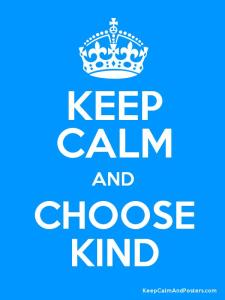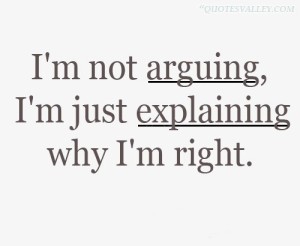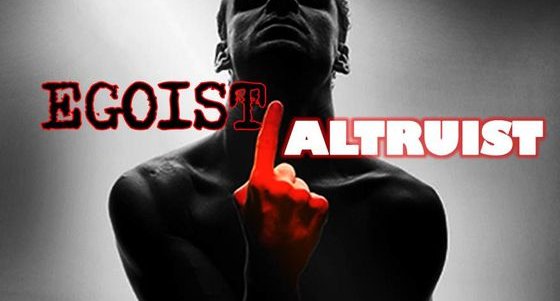 Personal note: I hate being wrong. I hate it so much that even when I was, I could argue my point ad nauseum until I prevailed. In many organizational circles, this trait is admired. It also produces armies of yes-men direct reports that allow little innovation or creative thinking.
Personal note: I hate being wrong. I hate it so much that even when I was, I could argue my point ad nauseum until I prevailed. In many organizational circles, this trait is admired. It also produces armies of yes-men direct reports that allow little innovation or creative thinking.
Coming out on top of an argument or a debate or prevailing in some methodology for a project is satisfying. It’s clearly in my comfort zone.
Readers of this blog should be sensing a red flag when I write that something’s in one’s comfort zone. Why? My take is that comfort zones are the crack cocaine of repeated behaviors. We’re addicted to them. Our library of predictable behaviors defines us. It predicts how we will behave in almost any circumstance.
It’s my contention that we collected that library in our early years based on what worked for us in our world. If we had older siblings, then we learned we didn’t get our way as often as we liked. If we were the older sibling, then we could learn to be right a lot, etc., etc.
This article is concerned about one predictable behavior and its value—that of an addictive need to be… RIGHT.
In the past several years, I’ve been privileged to coach a handful of business people, both employers and employees, who have all believed they were gifted with an ability to be right most of the time (and they all get this blog and know who they are!). Several have advanced degrees. One had six vice presidents reporting to him. One was stuck in middle management with less-educated “dumber” bosses. It’s SO UNFAIR!
The world needs the right answers, right? So why waste time in debate while I have the answer right here, right now.
Are you beginning to squirm a little? How does that attitude make you feel?
This attitude thrust on me makes me feel like I’ve got to defend MY position (even if I can see the efficacy of the other position). Right and not right is no longer the issue. On a sub-conscious level, who wins now becomes the issue. And if the direct report is actually more accurate (avoiding the term “right”), then there’s a very high likelihood that the most productive outcome will lose to the ego of the boss. And the direct report slinks away wondering how this company ever got off the ground.
Dr. Wayne Dyer is often credited with the quote “When given the choice between being right and being kind, choose kind.”
Let’s say you ARE right (and I would counsel you to always allow yourself some doubt). How did you feel when I accosted you with my rightness three paragraphs back? Presented in the same way, there’s a high likelihood that your counterpart will be put in the same emotional state… on the defensive. And your “rightness” will become less important than his or her dominance. You’re right, and you lose.
In a recent Huffington Post article , five virtues one could use besides dominant “rightness” are suggested: openness, detachment, humility, forgiveness, and kindness.
It’s been my experience that when we force the “right” issue, we’re usually losing sight of the real goal. If the real goal is to get the other person to recognize your interpretation of the data, then engaging him in an ego confrontation most likely will not get him there. It can result in the absolute opposite outcome… he gets more and more entrenched in his “not-rightness”.
Can you see how continued dialog has more potential to get you to your desired outcome than confrontation?
My dad had several very clever sayings, including: “If you beat your head against the rock wall long enough, pretty soon your head takes the shape of the rock wall.”
Do you have the presence of mind when NEXT time you believe you’re right to try being kind, or humble, or to back away until a better opportunity arises? Or will you keep banging your head against that rock wall?




I have to remind myself of this often, Kim. Thanks.